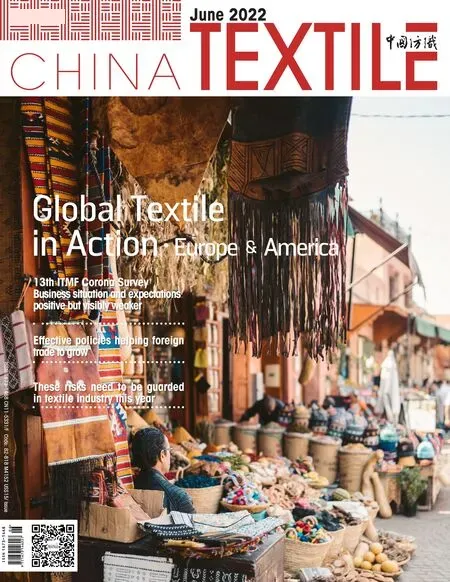CNTAC is strongly opposed to “Uyghur Forced Labor Prevention Act”
On June 21 (Eastern Time), the U.S. Customs and Border Protection (CBP) declared that all products made in China’s Uyghur Autonomous Region are presumed to be “forced labor” products under the so—called “Uyghur Forced Labor Prevention Act” (UFLPA) and are prohibited from entering the United States. In this regard, the relevant person in charge of the China National Textile and Apparel Council (CNTAC) said that the implementation of the so—called “Uyghur Forced Labor Prevention Act” in the U.S. means that all textile and apparel products produced and manufactured in Xinjiang are identified as “forced labor” products by the U.S. Customs. Unless the importer can prove that the goods are not produced by “forced labor”. The formulation and imple—mentation of the so—called “Uygur Forced Labor Prevention Act”, undermined the rules of international economy and trade fair, just, objective, seriously hurt the overall interests of China’s textile industry, and will disrupt the normal order of world textile industry and harm the rights of the world’s consumers, CNTAC expresses strong opposition to the so—called “Uyghur Forced Labor Prevention Act”.
Xinjiang cotton is recognized as a high—quality natural fiber material in the global industry, accounting for about 20 percent of the world’s total cotton output and is an important raw material source for the healthy and sustain—able development of China’s and the world’s textile industry, said the relevant person in charge of the CNTAC. The sanctions imposed by the United States on Xinjiang cotton and its products, in essence is not only a browbeating of China’s textile industry chain and is in serious damage to the security and sta—bility of the global textile industry chain and supply chain, but also the damage on the immediate interests of the global textile workers, in the name of “human rights”, violations of the tens of millions of textile workers’ labor rights.
The relevant person in charge of the China National Textile and Apparel Council pointed out that there is no so—called “forced labor” in China’s textile industry, including Xinjiang textile industry. Chinese laws have always explicitly prohibited forced labor, and Chinese textile enterprises have strictly complied with relevant national laws and regulations. Since 2005, the China National Textile and Apparel Council has been com—mitted to promoting the construction of social responsibility in the textile industry. As a labor—intensive industry, the protection of workers’ rights and interests has always been the core of the construction of the social responsibility sys—tem of China’s textile industry. The Xinjiang Cotton Textile Industry Social Responsibility Report was released by the Xinjiang Textile Industry Association in January 2021, fully demonstrating with detailed data that there is no so—called “forced labor” in Xinjiang’s textile industry. At present, in the process of cotton sowing in Xinjiang, the comprehensive mechanization level in most areas exceeds 98 percent. The so—called “forced labor” of cotton in Xinjiang is also funda—mentally inconsistent with the facts.
The relevant person in charge of the China National Textile and Apparel Council said that China is the largest producer, consumer and exporter of textiles and apparel in the world, the country with the most complete textile industry chain and the most complete categories, the core force supporting the smooth operation of the world textile industry system, and the important consumer market that international brands rely on. We firmly believe that the Chinese textile industry will be united, with the support of Chinese government departments, effectively respond to various risks and challenges, actively explore domestic and international markets, jointly maintain the safety of China’s textile industry chain, and promote the high—quality development of “science and technology, fashion and green” with responsible industrial practice.
- China Textile的其它文章
- Dear readers:
- 13th ITMF Corona Survey Business situation and expectations positive but visibly weaker
- European and American brands withdrawn from Russia
- France cooperates with EU institutions to try to get out of trouble
- Cross-industry innovations solve the new problems of German textile industry
- 榮盛集團(tuán)

